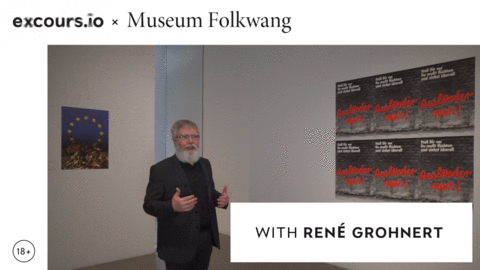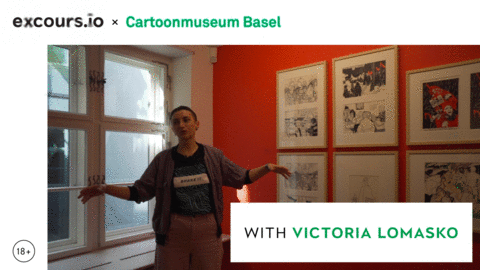Klaus Staeck. Sand for the Gears
Why should you watch this?
Klaus Staeck’s exhibition resonates deeply with contemporary audiences, serving as a powerful reminder of art’s capacity to provoke thought and inspire social change. In an age marked by political polarization and social unrest, Staeck’s nearly 180 posters challenge us to confront uncomfortable truths and reflect on the role of dissent in shaping public discourse. His bold, often scandalous imagery speaks to the importance of artists as catalysts for conversation, urging society to engage with pressing issues such as inequality, identity, and civic responsibility. As we navigate our own crises today, Staeck’s work underscores the timeless relevance of art as a tool for advocacy and a vehicle for sparking new dialogues. This exhibition not only honors a pivotal figure in art history but also invites us to consider how we, too, can use creativity to effect change in our communities.
Victoria Lomasko. Other Russias
Victoria Lomasko’s retrospective at Cartoonmuseum Basel invites viewers to engage deeply with her explorations of Russia’s marginalized communities. This vibrant exhibition showcases her striking murals and drawings, which intricately depict the lives of LGBT activists, sex workers, and migrant laborers. Through her keen observations and bold, expressive style, Lomasko highlights the social injustices and political repression faced by these groups.
Why should you watch this?
Victoria Lomasko’s retrospective at Cartoonmuseum Basel resonates profoundly with today’s global landscape of social justice and human rights. As she illuminates the lives of Russia’s marginalized communities, her work serves as a poignant reminder of the ongoing struggles faced by those often overlooked in society. In a world increasingly confronted with issues of inequality, discrimination, and political repression, Lomasko’s murals and drawings act as both a testament to resilience and a call for advocacy. By capturing the essence of these lived experiences she invites audiences to reflect on the shared responsibility we hold in addressing injustices, igniting conversations that transcend borders. The exhibition serves as both a visual narrative and a call to action, reflecting her long-standing commitment to human rights advocacy. This exhibition underscores the enduring relevance of her work in fostering empathy and inspiring change in our contemporary era.


